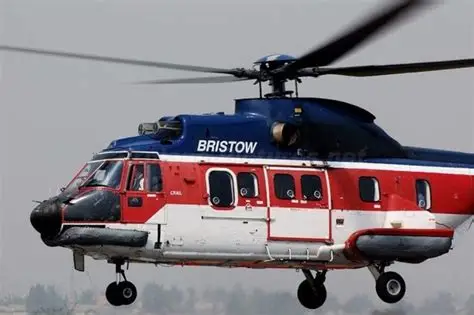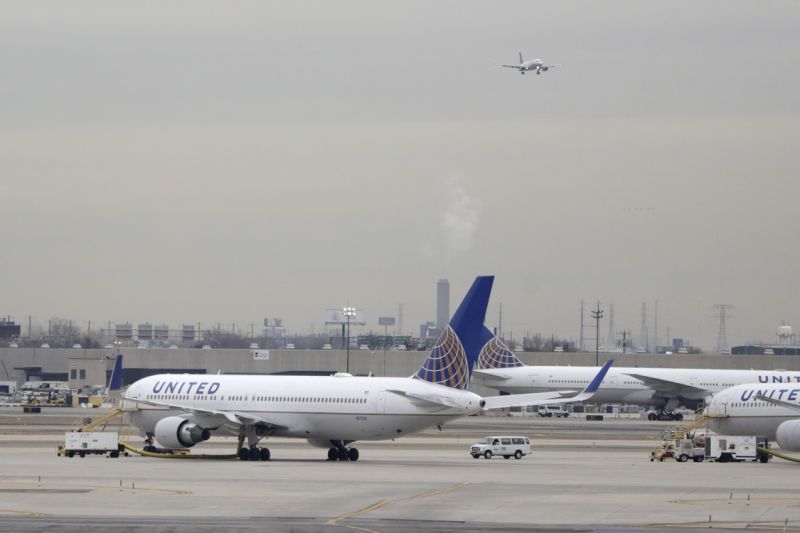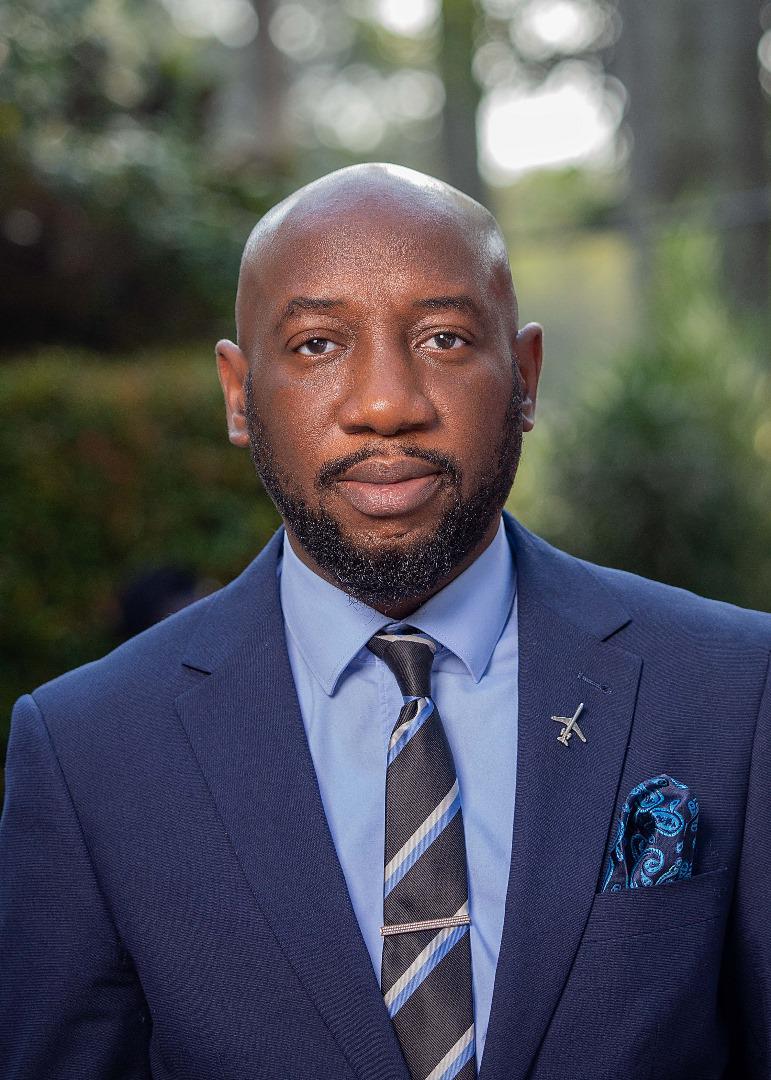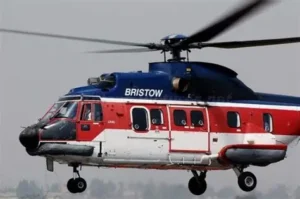
For over two years Nigerian airline operators that provide shuttle services to oil and gas companies in Nigeria have kicked against the payment of $300 Helicopter landing levy, which was introduced by the former Minister of Aviation, Hadi Sirika.
Although the implementation of the landing levy started recently under President Bola Ahmed Tinubu’s administration, the operators continue to kick against the levy, insisting it amounts to double taxation.
In May, 2024, the federal government started the collection of the levy but the helicopter operators resisted the payment, prompting the new Minister of Aviation and Aerospace Development, Festus Keyamo, to suspend it and later reintroduced it.
It is good to state that the company behind the collection of the levy is a private firm, NAEBI Dynamic Concepts Limited, which from the beginning, worked with Sirika to introduce the levy under the arrangement fashioned in a private, public partnership (PPP) manner. It has been alleged that agreement must have been reached on how the company and the Ministry of Aviation would share the revenue.
But the operators oppose the payment of the levy because they see it as double taxation. According to them, before the introduction of the levy, the operators have been paying their statutory taxes and charges and they have never negated such payments.
They said when the new levy was first introduced, the company involved, was ambivalent about the service it was going to render, which the operators needed to justify the payment.
They saw it as government highhandedness and arbitrary use of power in which the Ministry of Aviation could collaborate with the private sector to sap the operators already being asphyxiated with high cost of operation and taxes.
The operators last year wrote a memorandum of understanding between the Ministry of Aviation and Aerospace Development, the Nigerian Airspace Management Agency (NAMA), the Airline Operators of Nigeria (AON) and NAEBI Dynamic Concepts Limited.
The key point in the MoU is that the federal government’s desire to increase its revenue has engaged the private company to collect the $300 helicopter landing levy on its behalf.
“In furtherance of the approval, the Ministry, the Agency (NAMA) and the Company (NAEBI) executed an Agreement in November, 2022 for the Collection of Helicopter Landing Levy on all helicopter operations by the oil companies on oil fields, terminals, platforms, rigs, floating productive storage and offloading (FPSO) on heliports, helipads, airstrips aerodromes etc.,” the MoU states.
AON had said: “Helicopter Landing Levy shall only be on helicopter operations by oil companies on oil fields, terminals, platforms, rigs, floating productive storage and offloading (FPSO) on helicopters, helipads, airstrips, aerodrome and shall therefore not be applicable to the Airline Operators of Nigeria. The Helicopter Landing Levy shall not apply to the AON for all other types of helicopter operations.”
Further in the MoU, AON requested that the Helicopter Landing Levy, “shall only apply to helicopter operations that were undertaken by the oil companies on oil fields, terminals, platforms, rigs, floating productive storage and offloading (FPSO) on helicopters, helipads, airstrips, aerodrome.
“The AON shall not be liable to pay the Helicopter Landing Levy with respect to helicopter operations by the oil companies at the oil fields, terminals, platforms, rigs, floating productive storage and offloading (FPSO) on helicopters, helipads, airstrips, aerodrome.
“The oil companies shall be solely responsible for the payment of the helicopter landing levy on helicopter operations at the oil fields, terminals, platforms, rigs, floating productive storage and offloading (FPSO) on helicopters, helipads, airstrips, aerodrome.”
NAMA reinforced that it was oil and gas companies that were agreed to pay the levy in the press statement it issued in May, 2024 and signed by its Director, Public Affairs and Consumer Protection, Abdullahi Musa.
The statement said: “The federal government has lifted the temporary suspension on enforcement granted to Messrs NAEBI Dynamic Concepts Ltd, consultants for the collection of helicopter landing charges for air navigation services related to helicopter operations by oil companies in the Gulf of Guinea.”
The statement further said: “According to a ministerial directive on the above subject, Messrs Naebi Dynamics Concepts Ltd is to immediately resume collection of levies related to air navigation services for helicopter operations by oil companies operations at fields, platforms, terminals, rigs, FPSOs (Floating Production, Storage and Offloading), heliports, helipads and aerodromes in line with its contract.
“The ministerial directive which specified that NAEBIi Dynamic Concepts Ltd shall strictly invoice oil companies directly however excluded helicopters operated by Airline Operators of Nigeria (AON) from the said levies by the consultant.
“It woild be recalled that the Minister of Aviation and Aerospace Development, Festus Keyamo had in June 2024 temporarily suspended the collection of helicopter landing levies following concerns raised by Airline Operators of Nigeria (AON).”
From the press statement, which emanated from NAMA, helicopter companies were exempted from paying the levy, which dovetailed with the MoU signed earlier between the participants and AON.
In the ensuing development, it became evident that the oil and gas companies were not disposed to pay the levy because they were convinced that NAEBI Dynamic Concepts Ltd was not providing any additional service and it is insisting that the levy should be paid, which seemed very arbitrary.
Some of the stakeholders reinforced the position of the oil and gas companies when they spoke with the media.
The President of Topbrass Aviation Limited, Captain Roland Iyayi, a Trustee member of AON, condemned the imposition of the levy, saying the helicopter companies have been paying all their taxes in accordance to industry regulations, insisting the additional $300 landing fee is a burden on the operators that might undermine the industry, observing that with the involvement of NAMA the levy ought to have legislative and regulatory approval.
“When this matter came up during the tenure of the former Minister of Aviation, Hadi Sirika, we shut it down because we felt already the industry was overtaxed. Introducing something like this, we felt, was even going to be inimical to the growth of the industry. Again, if you ask all these individuals who are justifying the collection, they always say to you that the money is going to government, but the money is leaving the aviation sector,” Iyayi, said.
Also, the Chief Executive Officer of Aero Contractors, Captain Ado Sanusi, called the federal government to stand down the levy because the demand has no regulatory backing.
Sanusi said the company demanding the money has not provided any service to warrant payment for cost recovery, emphasising that if NAEBI Dynamic Concept Limited, had provided any infrastructure in any way like enhancing communications or any other kind of service, it could argue about collecting such payment, but so far, the company has provided nothing; so, the payment should be jettisoned.
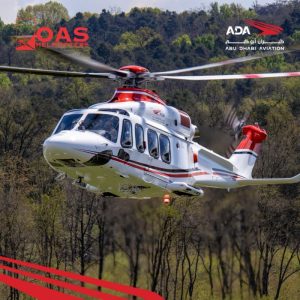
One of the stakeholders said: “ My stand has always been very clear on this. That payment of $300 fee is not part of the International Civil Aviation Organisation (ICAO) charges for cost recovery because you must invest; then you can now recover the cost. However, in a recent reaction, a former Director, Air Transport Management, Ministry of Aviation and Aerospace Development, Mr. Tai Ejibunu was quoted by media reports to have said that the levy was justified because government will use it to develop aviation infrastructure.
Many stakeholders responded to that and said that such promise is akin to putting the cart before the horse, noting that taxes and charges in aviation are paid for service recovery; that is, service already rendered; not a promissory note.”
The stakeholder further said: “In fact, some cynics in the industry described the $300 Helicopter levy as a scam, looking at how it originated and the fact that operators and oil companies are being charged for imaginary service with a promise that the money would be used to provide infrastructure in future.
“I do not believe the money will be used for anything. One of the reasons why we are resisting this payment is because if we succumb to it, in the next two years other spurious charges or levies will emerge.”


